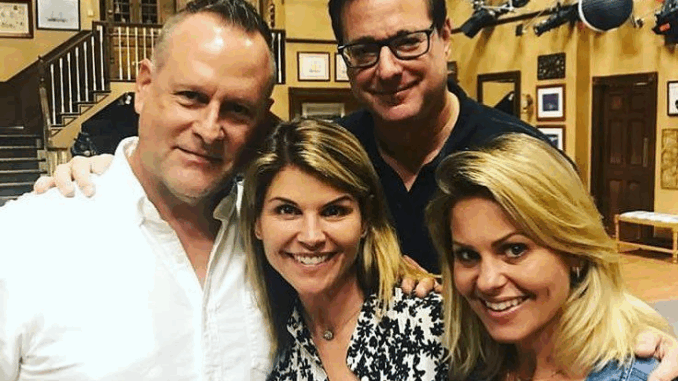
Full House was more than just a family sitcom—it was a cultural phenomenon that charmed audiences throughout the late ’80s and ’90s. But like many beloved shows, it eventually came to an end after eight seasons. Recently, Joey Lawrence, who guest-starred as Joey in the show’s later years, opened up about the reasons behind the original series’ cancellation and shared his thoughts on why some fans weren’t fully invested during its final stretch.
Let’s unpack Joey’s reflections on Full House’s conclusion, what changed in the later seasons, and what lessons fans and creators can take from it.
Who Is Joey Lawrence and What Was His Role on Full House?
Before diving into his reflections, it’s worth remembering who Joey Lawrence is. Best known for his role on Blossom, Lawrence guest-starred as himself in a Full House episode, adding a dash of star power and fun to the show’s final seasons.
His unique perspective as an actor in the ’90s TV scene gives his insights extra weight when discussing Full House’s journey.
Why Did Full House End After Season 8?
Joey candidly explained, “Not everybody was into it,” hinting at a mix of factors:
-
Shifts in audience interest: The initial magic of Full House didn’t resonate as strongly in later seasons.
-
Changes in TV landscape: The ’90s saw new shows with edgier content and fresher formats, making family sitcoms feel a bit dated.
-
Creative challenges: Maintaining the same charm and humor across eight seasons is tough, especially as the cast grows and storylines evolve.
Audience Reception: What Changed Over the Years?
Early Full House episodes thrived on relatable family moments and wholesome humor. Over time, some fans felt the show became formulaic or predictable. Joey acknowledged that not all fans stayed hooked through the last seasons, which affected ratings and ultimately the show’s lifespan.
The Evolution of Family Sitcoms in the ’90s
Joey’s comments touch on a broader trend: the evolution of family sitcoms. Shows like Full House paved the way, but by the mid-’90s, audiences craved more realism, edge, and diverse stories. Newer shows offered different vibes, making it harder for Full House to maintain its foothold.
The Impact of Cast Changes and Character Growth
As kids grew up, the dynamics shifted. The innocence and fresh humor of early seasons sometimes gave way to teenage drama, which didn’t always click with the audience. Maintaining character chemistry and evolving storylines was a delicate balance that wasn’t always perfect.
Joey Lawrence’s Personal Take: The Show’s Legacy
Despite the show’s end, Joey celebrates Full House’s legacy. He sees the show as a “foundation” for many family sitcoms that followed and appreciates how it touched millions of viewers with its warmth and humor.
Why Did Some Fans Lose Interest?
Joey suggested that the show’s “formula” might have played a role. Repeated storylines and predictable outcomes can make any series feel stale. Some fans wanted something new, something that reflected the changing times.
What Could Have Extended Full House’s Run?
While hindsight is 20/20, Joey hinted that fresh ideas, evolving characters more naturally, and perhaps shaking up the formula might have kept the momentum going longer.
The Role of Network Decisions
Cancellation decisions aren’t always about creativity. Ratings, advertising dollars, and network strategies heavily influence whether a show stays or goes. Full House faced competition and shifting priorities at the network level, which factored into the decision.
Fan Reaction to the Cancellation
At the time, fans were disappointed but understanding. Many cherish Full House as a nostalgic gem, embracing reruns and spin-offs like Fuller House. Joey recognizes that the fandom remains strong, even decades later.
Joey’s Advice to Aspiring TV Stars
Reflecting on the show’s end, Joey encourages new actors to embrace change, stay flexible, and always keep the audience’s evolving tastes in mind.
How Full House Paved the Way for Future Family Shows
The show’s mix of humor, heart, and family values inspired countless others. Joey credits it for creating a blueprint that blends fun and lessons, a format still beloved today.
Looking Back: What Made Full House Special
Despite challenges, Full House remains a classic for its:
-
Memorable characters
-
Catchy theme song
-
Positive messages
-
Family-first approach
Joey reminds fans why it still resonates, even if its ending wasn’t perfect for everyone.
Fuller House: The Revival That Gave Fans a Second Chance
Though the original ended, the Fuller House reboot brought back the beloved family for a fresh generation. Joey’s reflections tie back to how the revival balanced nostalgia with new stories, catering to loyal fans and newcomers alike.
Conclusion: Celebrating Full House While Accepting Its End
Joey Lawrence’s honest take on Full House’s cancellation gives fans a clearer picture of what really happened behind the scenes. Not every show lasts forever, and not every season connects perfectly. But the impact of Full House is undeniable, living on in hearts and reruns worldwide.
FAQs
1. Why did Full House end after Season 8?
A mix of declining ratings, changing audience interests, and network decisions led to its cancellation.
2. Did Joey Lawrence appear regularly on Full House?
No, he guest-starred as himself in one of the later seasons.
3. How did fans react to the show ending?
Many fans were sad but continued to love the show through reruns and later spin-offs.
4. What made Full House unique as a family sitcom?
Its wholesome family values, relatable characters, and humor made it stand out.
5. Did Full House influence later TV shows?
Absolutely. It set a blueprint for family sitcoms that blend humor and heart.
